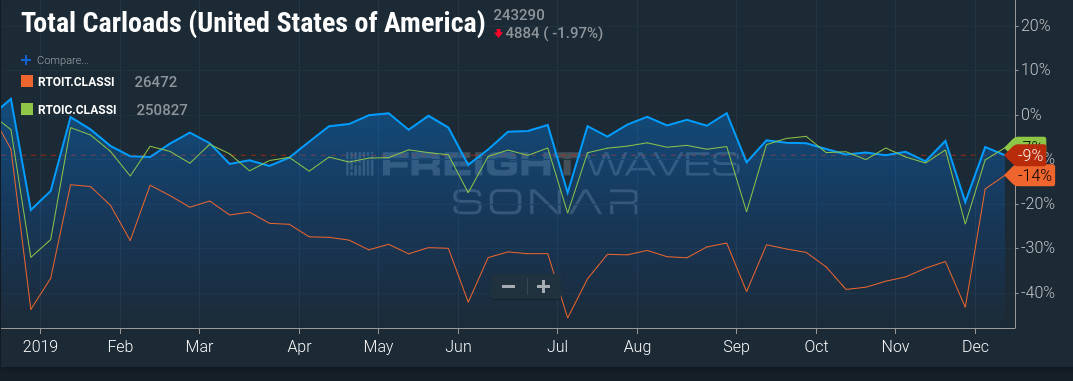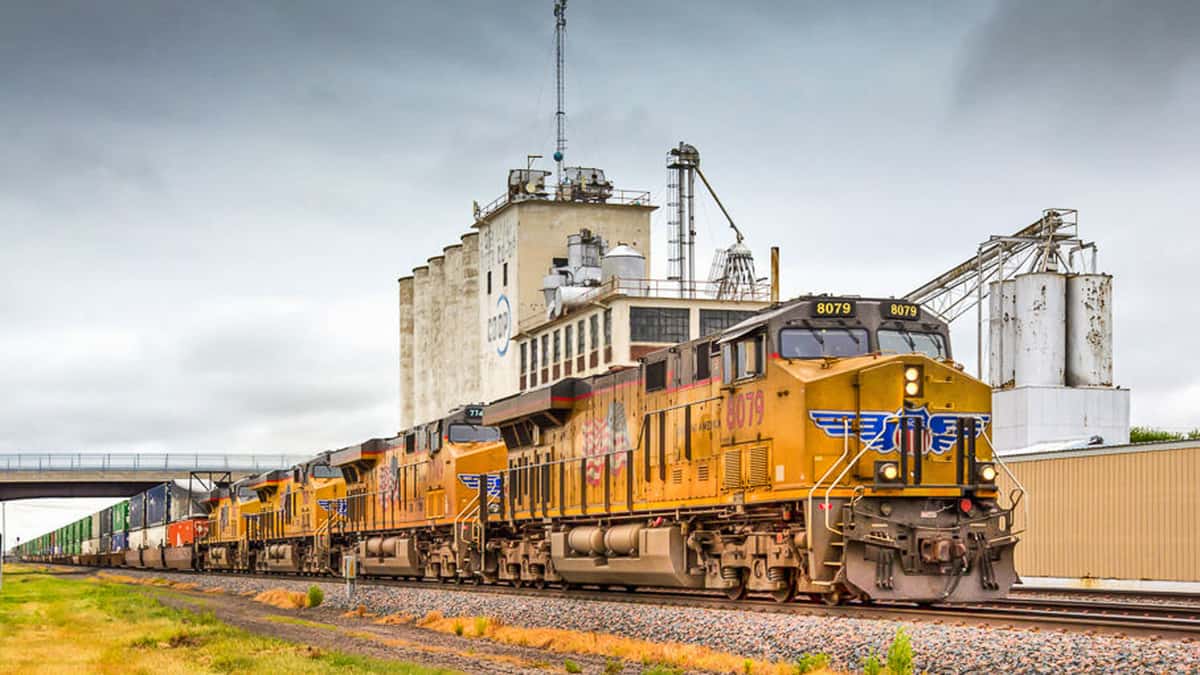Year-to-date U.S. rail traffic continues to be lower than the same period in 2018 amid challenging year-over-year comparisons that developed as a result of U.S. trade uncertainties.
U.S. rail volumes were elevated in December 2018 because shippers sought to increase shipments ahead of U.S. tariffs on certain goods from China. That “pull ahead” in volumes resulted in higher rail traffic, particularly for intermodal.
Total U.S. rail volumes year-to-date consisted of 25.8 million carloads and intermodal units for the week ending Dec. 14, a 4.8% drop from the same period in 2018, according to the Association of American Railroads (AAR). Of that, U.S. railroads originated 12.5 million carloads, a 4.7% dip from the same period last year, while U.S. intermodal units fell 5% to 13.3 million intermodal containers and trailers.

Meanwhile, North American rail volumes year-to-date totaled 35.3 million carloads and intermodal units, a 3.8% decline from the same period in 2018. North American carloads and North American intermodal units each totaled 17.6 million units, and both categories fell 3.8% year-over-year.
North American freight rail groups press for North American trade agreement
AAR is hoping final passage of the trade agreement between the U.S., Mexico and Canada, known as USMCA, will bring some certainty to U.S. trade policy, at least for North America. Last week the trade association called for a speedy ratification of the agreement among U.S. lawmakers, and this week AAR joined its counterpart associations in Canada and Mexico in calling for a trade resolution to come about soon.
AAR President Ian Jefferies, Asociación Mexican de Ferrocarriles Director Iker de Luisa Plazas and Railway Association of Canada President Marc Brazeau all signed a letter that was sent to U.S. congressional leadership, Canadian Deputy Prime Minister Chrystia Freeland and Mexican Undersecretary to North America Jesus Seade calling for leaders to consider how the trade pact would benefit the integrated North American freight network.
“We urge policymakers in Canada and the United States to work diligently towards ratifying the agreement so that it may enter into force as soon as possible,” the letter said. “The integrated North American freight rail network, which plays a critical role in transporting goods across the continent, embodies the benefits of free trade without the burden of tariffs. Economic growth tied to North American trade has fostered additional, mutually beneficial outcomes for businesses across our countries, opening new markets and increasing prosperity.”
The letter continued, “As our industry serves much of this cross-border traffic, this economic growth has in turn allowed railways to invest billions of dollars into their infrastructure while improving productivity and customer service and fostering innovation. We will only grow stronger in the future by fortifying our relationships as top trading partners.”
Meanwhile, the U.S. and China negotiated a trade deal last week that some hope will mark the beginning of the end of strained trading relations between the two countries. The U.S. is no longer imposing additional tariffs on Chinese imports, skirting a Dec. 15 deadline, and the two countries are planning to continue with negotiations.
“We have agreed to a very large Phase One Deal with China. They have agreed to many structural changes and massive purchases of Agricultural Product, Energy, and Manufactured Goods, plus much more. The 25% Tariffs will remain as is, with 7 1/2% put on much of the remainder,” President Donald Trump tweeted.











